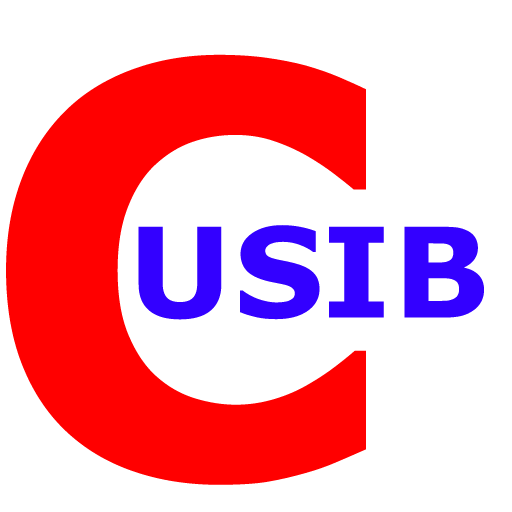In response to The New York Times article and New York Post report that Chinese dissident Chen Guangcheng is being forced from New York University, CUSIB members joined former Chinese political prisoners and other human rights activists in signing a letter N.Y.U. President John Sexton with questions about alleged restrictions on Mr. Chen’s public appearances and contacts with media.
The New York Times reported that two N.Y.U. interpreters who were accompanying Mr. Chen on a visit to Washington, D.C. refused to allow a reporter from Radio Free Asia (RFA) to interview him. Others contradicted this account and offered an alternative explanation. The paper also quotes Jerome A. Cohen, a law professor who helped arrange Mr. Chen’s fellowship and who considers himself a confidant, that N.Y.U. had been “exceedingly generous, providing him with transportation, security and private lessons in law and English.”
“They have done more than imaginable, but I don’t know how anyone could stay here at N.Y.U. on a continual basis,” Mr. Cohen said Thursday. “No political refugee, not even Albert Einstein, has received better treatment.”
Both The New York Times and New York Post quoted sources saying that N.Y.U. has told a blind Chinese political dissident to leave its campus under pressure from the Chinese Communist government as the university builds a branch in Shanghai.
The New York Times reported that “in a statement released Sunday, Mr. Chen said university officials were worried that his outspoken criticism of the Chinese government might threaten academic cooperation.” “A number of professors are involved in programs and research projects here that could be harmed if they were denied Chinese visas,” the paper reported.
“The work of the Chinese Communists within academic circles in the United States is far greater than what people imagine, and some scholars have no option but to hold themselves back,” Mr. Chen said. “Academic independence and academic freedom in the United States are being greatly threatened by a totalitarian regime.” N.Y.U. denies that it is acting under pressure from the Chinese government in its treatment of Mr. Chen.
June 17, 2013
John Sexton
Office of the President
New York University
70 Washington Square South
New York, NY 10012
Dear Mr. Sexton:
It is hard to contain the anger we have all felt after reading recent media reports about New York University School of Law Professor Jerome Cohen and his treatment of Chen Guangcheng – not only how Chen Guangcheng must leave his residence and his studies as a special student in law by the end of the month, but moreover, the manner in which Professor Jerome Cohen is alleged to have controlled Chen Guangcheng’s public appearances since Mr. Chen arrived in New York City.
When Nelson Mandela came to New York, he stood on the steps of City Hall and demanded justice for his people, but when Chen Guangcheng arrived in New York, he was not afforded those same freedoms. Chen Guangcheng was carefully whisked away. Professor Cohen was in charge of the public’s access to Mr. Chen.
How was it that Professor Cohen was able to monitor Mr. Chen’s work, his words, and his schedule in the United States of America in this manner?
How was it that Mr. Chen’s story was carefully kept off the front pages during the 2012 US election season?
How was it that Mr. Chen’s meetings with political leaders, Chinese dissidents, and freedom fighters were carefully screened? Why did Professor Jerome Cohen insist that many of these meetings be kept confidential and not open to the media when he was Mr. Chen’s handler throughout most of his stay here and was ever present on those rare occasions when Mr. Chen was permitted to speak in public?
One has to wonder whether Professor Jerome Cohen’s approach to Mr. Chen is tainted by the university’s involvement in establishing NYU Law School’s satellite branch in Shanghai? Does the possibility of ill will from the future host in the PRC make this move to jettison Chen Guangcheng a face-saving gesture?
And if so, one has to wonder how Professor Jerome Cohen and NYU intend to teach principles of law and justice in China, a country where discussion about forced abortion, freedom of religion, freedom of the press and any sense of democratic ideals is prohibited?
We hope that another institution that lives by example of the principles of law and justice will welcome Chen Guangcheng and highlight his struggle for human rights in China.
Sincerely,
Ann Noonan, Committee for U.S. International Broadcasting
Ted Lipien, Committee for U.S. International Broadcasting
Harry Wu
Justin Yu
Jing Zhang
Michael Noonan, Esq., NYU/WSUC Class of ’81
Mandy Tam Heung Man, District Councilor of Wong Tai Sin
Kathy Lin, Sierra Language & Culture Institution
Feng Suying
Fred Leong
Ann Leong
Chih-Ming Hu, Ph.D., Sunshine Appraisal Company
陈新浩,悉尼,0424803889
孙宝强,悉尼 0404700187
陈孜轩,洛杉矶
cc: Jerome Cohen

